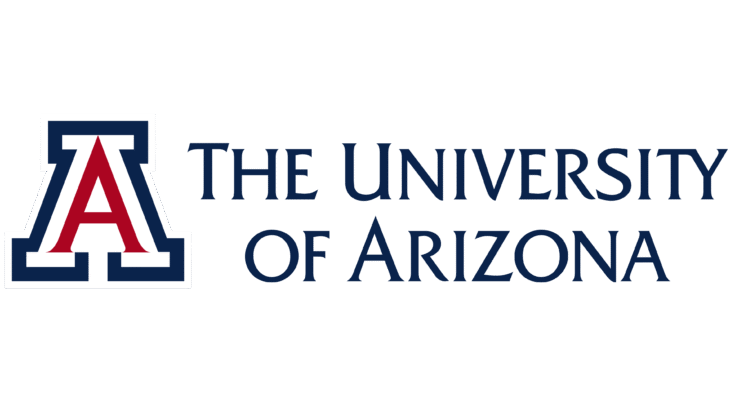Introduction to the University of Arizona
Founded in 1885, the University of Arizona, located in Tucson, Arizona, is a leading public research institution renowned for its academic programs and global contributions. It serves as a hub for innovation, fostering interdisciplinary collaboration across more than 300 undergraduate, graduate, and professional degrees. Known for its commitment to student success and societal advancement, the university consistently ranks among the top national and global institutions.
Its campus, spanning over 380 acres, houses state-of-the-art facilities, including research laboratories, libraries, and cultural centers. With a diverse student body exceeding 45,000 enrollees, the university emphasizes inclusivity, sustainability, and cutting-edge discovery.
Historical Overview of the University
Founded in 1885, the University of Arizona became the first university in Arizona Territory, predating Arizona’s statehood by 27 years. Initially established through the Arizona Territorial Legislature, the institution’s creation faced resistance from local Tucson residents, but pioneers persisted in their vision. The inaugural class in 1891 consisted of just 32 students and six faculty members, laying the groundwork for its future legacy. Over time, the university grew, expanding its academic offerings and earning a reputation for excellence. Key milestones include the establishment of groundbreaking research facilities and its designation as a land-grant institution under the Morrill Act.
Campus Life in Tucson
The University of Arizona in Tucson offers students an enriching campus life, blending academic rigor with cultural vibrancy. Tucson’s warm climate encourages outdoor activities, with students frequently engaging in hiking, biking, or exploring the nearby Saguaro National Park. The campus itself serves as a hub for diverse experiences, home to world-class facilities such as the University of Arizona Museum of Art and the Flandrau Science Center & Planetarium.
Students benefit from a variety of on-campus organizations, including over 600 clubs that cater to interests ranging from environmental advocacy to robotics. Annual events like Spring Fling highlight the university’s dynamic atmosphere. Dining and recreational options, coupled with robust student support services, create a welcoming environment for growth and exploration.
Academic Programs and Degrees Offered
The University of Arizona in Tucson provides a comprehensive array of academic programs designed to meet the needs of both undergraduate and graduate students.
- Undergraduate Programs: Spanning over 300 majors and minors, students can choose disciplines within engineering, business, social sciences, arts, and more.
- Graduate and Professional Degrees: Over 150 advanced degrees, including master’s, doctoral, and professional programs, are offered across fields such as medicine, law, and public health.
- Interdisciplinary Opportunities: Unique, cross-disciplinary programs foster innovation by integrating multiple fields of study.
- Online and Global Education: Flexible online degrees and international exchange opportunities ensure access to high-quality education globally.
Facilities and resources enrich these programs, encouraging academic excellence.
Research Opportunities and Facilities
The University of Arizona in Tucson provides cutting-edge research opportunities across diverse disciplines, fostering innovation and global collaboration. Its state-of-the-art facilities, including the Biosphere 2 and Richard F. Caris Mirror Lab, enable groundbreaking scientific inquiry. Researchers access high-performance computing resources, such as the CyVerse cyberinfrastructure, essential for data-intensive studies.
Key focus areas include:
- Astronomy and Space Sciences: Home to world-renowned observatories and NASA partnerships.
- Environmental Studies: Advanced labs for climate, water, and sustainability research.
- Biomedical Sciences: Facilities for genomic research and imaging technologies.
Interdisciplinary programs, robust funding opportunities, and support systems create an enriching environment for academic and professional growth.
Student Support Services and Resources
The University of Arizona provides comprehensive support services to ensure student success. Academic support includes tutoring, writing assistance, and access to state-of-the-art libraries. Career services offer guidance through resume workshops, job fairs, and one-on-one career counseling. For mental and physical well-being, the university provides counseling services, wellness programs, and access to health centers.
Specialized centers support diverse communities, including veterans, first-generation students, and international students. Accessible housing and transportation solutions enhance campus inclusivity. Technology resources, such as high-speed internet and software labs, equip students for modern challenges. Continuous feedback mechanisms allow services to evolve, meeting the dynamic needs of the student body.
Notable Faculty and Alumni
- Dr. Don Carter: Leading researcher in water resources who pioneered methods for sustainable aquifers globally.
- Barbara McConnell Barrett: Former U.S. Ambassador to Finland and Secretary of the Air Force.
- Richard F. Caris: Philanthropist whose contributions funded groundbreaking astronomical research.
- Jerry Bruckheimer: Renowned Hollywood producer of blockbusters like Pirates of the Caribbean.
- Lidia Yuknavitch: Acclaimed author and prominent voice in contemporary literature.
The blend of academic excellence and innovative contributions by faculty and alumni underscores the University of Arizona’s global influence across diverse disciplines.
Extracurricular Activities and Student Organizations
The University of Arizona offers a dynamic range of extracurricular activities and student organizations designed to enrich the academic and social experience. With over 600 registered student organizations, the university accommodates diverse interests, including academic societies, cultural clubs, sports teams, and volunteer groups. These organizations foster leadership development, collaboration, and community engagement.
Students explore opportunities through initiatives such as clubs for engineering innovation, arts, and multicultural advocacy. Participation in intramural sports or sustainability efforts provides avenues for personal growth and networking. The Associated Students of the University of Arizona (ASUA) serves as the student government, offering support and funding for activities, ensuring representation across campus.
Community Engagement and Outreach
The University of Arizona actively collaborates with local organizations and stakeholders to address community needs. Its faculty, staff, and students participate in programs that promote education, healthcare access, and environmental sustainability. Outreach efforts include hosting workshops, free clinics, and mentorship initiatives targeting underserved populations.
Community partnerships strengthen economic development through small business support and workforce training. The university’s cultural centers and museums foster inclusiveness by showcasing regional heritage and history. Public lectures, science fairs, and art exhibits invite residents to engage in learning and dialogue.
These multifaceted initiatives emphasize long-term relationships, connecting academic expertise with community-driven goals for shared progress.
Global Partnerships and Collaborations
The University of Arizona has established an extensive network of global partnerships, fostering collaboration across continents. These alliances span various fields, including technology, health care, environmental sustainability, and education.
- International Research Initiatives: The university collaborates with institutions worldwide to address pressing global issues such as water scarcity, renewable energy, and climate change.
- Academic Exchange Programs: Partnerships with universities in Europe, Asia, and South America enable student and faculty exchanges, enhancing cross-cultural learning.
- Joint Degree Programs: Cooperative academic programs offer students opportunities to earn dual degrees from partner institutions.
These collaborations amplify the university’s impact, driving innovation and creating a shared vision for worldwide progress.
Sustainability Initiatives on Campus
The University of Arizona in Tucson demonstrates a commitment to sustainability through innovative programs and practices. Its Office of Sustainability spearheads efforts that include energy conservation, waste reduction, and resource-efficient landscaping. The campus prioritizes renewable energy, featuring extensive solar panel installations. Students engage in eco-conscious activities, such as composting drives and environmental workshops.
The university also integrates sustainability into its curriculum, offering courses focused on environmental science and policy. Water-saving measures, including rainwater harvesting systems, support regional conservation efforts. These initiatives make the institution a model for addressing climate challenges, promoting environmental stewardship across academic and community spheres.
Student Success Stories
The University of Arizona in Tucson has transformed lives globally through its students’ remarkable achievements. Alumni have excelled across disciplines, from pioneering scientific research to innovative entrepreneurship. Notable examples include students who developed sustainable energy solutions, revolutionizing green technology worldwide.
Graduates from the Eller College of Management have launched startups valued in the millions, fostering economic growth in over 20 countries. Medical students have advanced healthcare practices, delivering life-saving innovations in underserved regions.
Additionally, students in the university’s space exploration programs have contributed to key NASA missions, further cementing Arizona’s leadership in Mars and lunar exploration research.
Scholarships and Financial Aid
The University of Arizona in Tucson provides a range of scholarships and financial aid options to support students’ diverse needs. Merit-based scholarships are awarded to recognize academic excellence, while need-based aid helps ensure access for students facing financial barriers.
Available opportunities include:
- Arizona Excellence Awards: For high-achieving incoming students.
- Wildcat Tuition Awards: Targeted at out-of-state students.
- Pell Grants and Federal Work-Study: Supporting low-income students.
Additionally, specialized scholarships exist for transfer students, veterans, and underrepresented groups. Students can use tools like the Scholarship Universe platform to explore customized opportunities. Resources such as counseling and workshops guide applicants through the financial aid process, ensuring accessibility and maximizing their potential.
Future Prospects and Developments
The University of Arizona in Tucson is poised for significant advancements in research, global collaboration, and technological innovation. Future initiatives emphasize sustainability through renewable energy projects and the expansion of environmental science programs. Efforts to enhance cross-disciplinary research are gaining momentum, particularly in areas like artificial intelligence, space exploration, and precision health.
Plans to strengthen international partnerships are underway, fostering academic exchange and global impact. Additional funding is expected to bolster infrastructure, such as state-of-the-art laboratories and collaborative learning spaces. Moreover, the university aims to scale its outreach programs, empowering underserved communities and addressing global challenges through education and technology.
Conclusion: The University of Arizona’s Commitment to Excellence
The University of Arizona demonstrates an unwavering commitment to academic excellence and global innovation, fostering progress across diverse disciplines. Its collaborative initiatives in research, sustainability, and education illustrate the institution’s dedication to creating meaningful change. By prioritizing student success and pioneering advancements in technology and medicine, the university actively shapes the future of its community and the world.
Furthermore, its partnerships with international organizations and focus on inclusivity underscore its role as a leader in impactful global engagement. This steadfast dedication positions the University of Arizona as an institution transforming challenges into opportunities for advancement and leadership.



